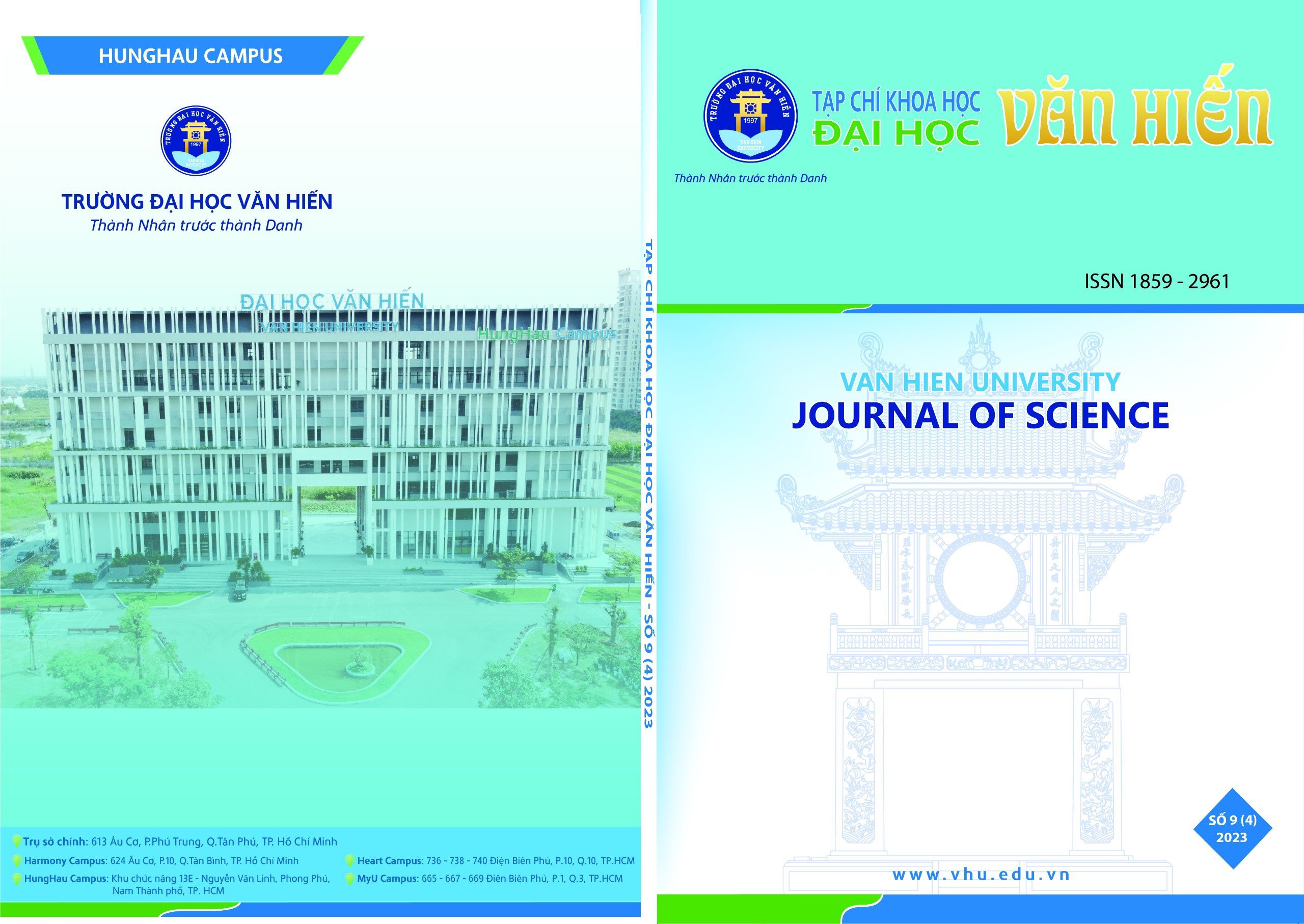The historical discourse in the novel of Hoang Quoc Hai
Main Article Content
Abstract
Article Details
References
Bakhtin, M.M. (1986). The Problem of Speech Genres. Lã Nguyên tuyển dịch (2012). Lí luận văn học - những vấn đề hiện đại. Hà Nội: Nxb Đại học Sư phạm.
Đặng Văn Sinh (2011). Vương triều Lý dưới góc nhìn của tiểu thuyết gia Hoàng Quốc Hải. Truy xuất từ: https://www.vanchuongviet.org/index.php?comp=tacpham&action=detail&id=16040
Đoàn Thị Huệ (2016). Nghệ thuật biểu hiện phương diện đời tư thế sự của nhân vật lịch sử trong tiểu thuyết lịch sử Việt Nam đương đại - qua khảo sát tác phẩm của Hoàng Quốc Hải, Nguyễn Xuân Khánh, Nguyễn Mộng Giác, Nguyễn Quang Thân. Tạp chí khoa học Đại học Đồng Nai, 2: 81-90.
Hoàng Quốc Hải (2010). Tám triều vua Lý. Hà Nội: Nxb Phụ nữ.
Hoàng Quốc Hải (2016). Bão táp triều Trần. Hà Nội: Nxb Phụ nữ.
Lotman, Ju. M., Uspenskij, B.A., Ivanov, V.V., Toporov, V.N., Pjatigorskij, A.M. (1975). Theses on the Semiotic Study of Culture (as Applied to Slavic Texts). Lisse, The Peter de Ridder Press. Lã Nguyên, Đỗ Hải Phong, Trần Đình Sử dịch (2016). Kí hiệu học văn hóa. Hà Nội: Nxb Đại học Quốc gia Hà Nội.
Nguyễn Thị Bình (2010). Một số khuynh hướng tiểu thuyết nước ta từ thời kì đổi mới đến nay. Báo cáo tổng kết Đề tài nghiên cứu khoa học cấp Bộ, trường Đại học Sư phạm Hà Nội.
Nguyễn Xuân Khánh (2000). Hồ Quý Ly. Hà Nội: Nxb Phụ nữ.
Nguyễn Xuân Khánh (2005). Mẫu Thượng ngàn. Hà Nội: Nxb Phụ nữ.
Nguyễn Xuân Khánh (2011). Đội gạo lên chùa. Hà Nội: Nxb Phụ nữ.
Ngô Thanh Hải (2019). Ba mô hình truyện lịch sử. Luận án Tiến sĩ Văn học, Trường Đại học Sư phạm Hà Nội.
Tyupa, V.I. (2001). Trần thuật học như là khoa học phân tích diễn ngôn trần thuật. Lã Nguyên dịch từ bản tiếng Nga (2013). Truy cập https://languyensp.wordpress.com/2013/09/13/tran-thuat-hoc-nhu-la-khoa-hoc-phan-tich-dien-ngon-tran-thuat-3/
Võ Thị Hảo (2004). Giàn thiêu. Hà Nội: Nxb Phụ nữ.
White, H. (2014). Metahistory: The Historical Imagination in 19th-Century Europe. Baltimore: The Johns Hopkins University Press.
Wilber, K. (1996). A Brief History of Everything. Dương Ngọc Dũng dịch (2023). Một lược sử về vạn vật. Hà Nội: Nxb Hồng Đức.



